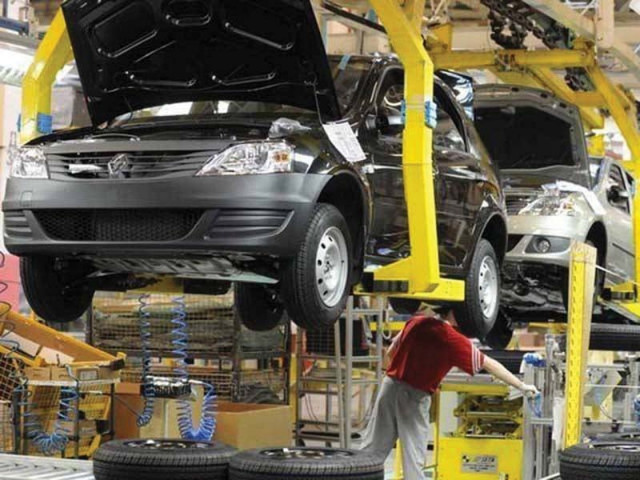Incentives for new entrants may hinder auto parts sector
Industry official says concessionary tariffs for import of CKD parts do not make it lucrative for new players

Industry official says concessionary tariffs for import of CKD parts do not make it lucrative for new players to indigenise production. PHOTO: FILE
According to a JS report, new entrants will invest $820 million in the aftermath of the Auto Development Policy 2016-21, which is expected to enhance the existing auto industry’s capacity by 60%. Total additional capacity from the new entrants has been estimated at 192,000 units in the report. The total auto industry capacity of passenger cars, LCVs and SUVs of the country is expected to increase from the existing 280,000 units to around 465,000 units within the next two to three years.
“Pakistan auto parts manufacturers have grown significantly as volumes have increased to around 230,000 vehicles last year,” Allawala told The Express Tribune. Besides, it is to be kept in mind that 80,000 used cars were also imported through misuse of schemes meant for overseas Pakistanis, he added.
Hyundai signs deal to sell 1,000 hydrogen-powered trucks
“Hence, the total market size is over 300,000 vehicles per year.” He said that with the arrival of new players, there will be a wider choice available to consumers. “However, if there is no economic growth leading to growth in automobile demand, all assemblers will see their volumes shrinking as total volume will remain the same,” he said.
But the low motorisation rate of the country, which stands at 18 vehicles per 1,000 people, suggests that there is immense potential in the country. Moreover, some auto players even take half a year to deliver a car after a buyer has booked it. Allawala said that there are concessionary tariffs for new automakers in the country, which will hinder growth of local auto parts industry. “The new players have a concessionary tariff for import of CKD parts for a period of five years.
Therefore they don’t need to localise as there is not much cost benefit. Hence, auto parts manufacturers are not expected to see much growth in their business due to new entrants,” he stressed.
Ghandhara Nissan reports 91% surge in profit
“The key point for the government to understand is that economic growth and increase in automobile market size is critical to create massive employment and technology acquisition in the country.” “Parts manufacturers are in no position to compete overseas suppliers to the original equipment manufacturers (OEMs), while the new OEMs entering the industry with no localisation motive are still enjoying the incentives of reduced duty structure,” he said.
However, according to the auto industry people, the depreciating host currency would make localisation more lucrative for the auto industry. The rupee has depreciated by 18% during the last ten months.
Nissan Motor Corporation Senior Vice President Peyman Kargar, who visited Pakistan earlier this year to sign a renewed partnership agreement with Ghandhara Nissan, said that the process of localisation depends on the number of cars produced. He said that the unstable exchange rate in Pakistan would make the process of localisation more feasible.
In times to come, it would be necessary in order to become cost competitive for the companies in the country.



















COMMENTS
Comments are moderated and generally will be posted if they are on-topic and not abusive.
For more information, please see our Comments FAQ